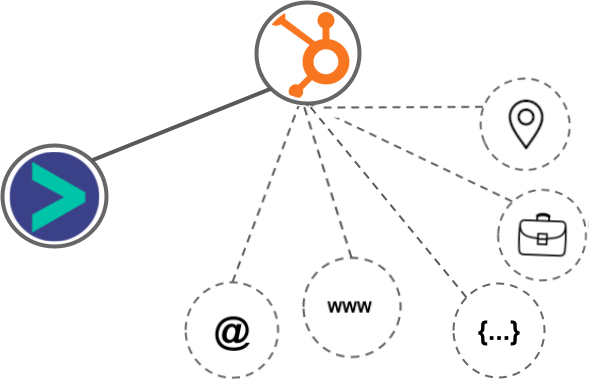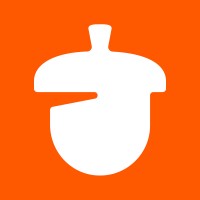HubSpot CRM vs Zoho CRM
Hyperise integrates with 100's of sales and marketing tools, many of which are in the CRM category. With so many to choose from it's sometimes hard to know which is best, but don't worry, we've got your covered.
In this comparison guide we're going to look at the Highlights, Pros, Cons and Pricing of HubSpot CRM and Zoho CRM. We'll also delve into the details of which offers the best personalization options within CRM, with there respective Hyperise integrations

HubSpot CRM
Pricing: Hubspot offers a range of pricing plans, including a free version and paid plans starting at $50 per month. The exact price depends on the features and the number of contacts you need to manage.
Vs

Zoho CRM
Pricing: Zoho offers several pricing plans for its CRM solution, including a Free Plan for up to 10 users that includes basic CRM features such as lead management, contact management, and sales forecasting. RThe Standard plan starts at $12 per user and rises to $20 per user for the Professional Plan. Zoho also offers a 15-day free trial for all its plans, allowing you to test the platform before making a decision.
HubSpot CRM vs Zoho CRM Highlights
HubSpot and Zoho are two different customer relationship management (CRM) platforms that offer different features and services.
HubSpot is a comprehensive inbound marketing and sales platform that provides a range of tools for lead generation, lead management, email marketing, social media management, website management, and analytics. It is ideal for small to medium-sized businesses looking for a full-featured solution to manage their inbound marketing and sales processes.
Zoho, on the other hand, is a suite of business applications that includes a CRM solution. It is a more versatile platform that provides not just a CRM but also tools for finance, project management, HR, and more. Zoho is best suited for small to large organizations looking for a single platform to manage multiple business processes.
In summary, HubSpot is more focused on inbound marketing and sales, while Zoho is a more comprehensive business application suite that includes a CRM solution.
HubSpot CRM vs Zoho CRM Pros
HubSpot CRM Pros
- Inbound marketing focus: HubSpot provides a comprehensive inbound marketing platform that includes lead generation, lead management, email marketing, social media management, website management, and analytics. Zoho CRM, on the other hand, is a more versatile platform that includes a CRM solution but is not as focused on inbound marketing.
- Lead generation tools: HubSpot provides a range of lead generation tools, including landing pages, forms, and calls-to-action. These tools are integrated into the platform and are designed to help businesses generate more leads.
- Sales and marketing alignment: HubSpot's sales and marketing tools are designed to work together, allowing sales and marketing teams to collaborate effectively and streamline their processes.
- User-friendly interface: HubSpot has a user-friendly interface that makes it easy for businesses to use and navigate the platform.
- Customer support: HubSpot provides excellent customer support, including a knowledge base, community forum, and phone support.
Zoho CRM Pros
- Affordability: Zoho CRM is generally more affordable than HubSpot, especially for smaller businesses and organizations with more basic needs.
- Versatility: Zoho is a suite of business applications that includes a CRM solution, finance, project management, HR, and more. This makes it a more versatile platform for businesses with a wider range of needs.
- Customization options: Zoho offers a range of customization options, including the ability to create custom fields and modules, making it easier for businesses to tailor the platform to their specific needs.
- Integration options: Zoho integrates with a number of third-party tools and other Zoho applications, providing businesses with a wider range of integration options.
- Sales and marketing alignment: Zoho CRM provides tools for sales and marketing teams to collaborate effectively and streamline their processes.
- User-friendly interface: Zoho CRM has a user-friendly interface that makes it easy for businesses to use and navigate the platform.
HubSpot CRM vs Zoho CRM Cons
HubSpot CRM Cons
- Price: HubSpot can be more expensive than Zoho CRM, especially for larger organizations with more advanced needs.
- Limited integration options: While HubSpot integrates with a number of popular third-party tools, it may not have as many integration options as Zoho, which offers a wider range of integrations with other Zoho applications and third-party tools.
- Steep learning curve: HubSpot is a comprehensive platform with many features and functions, which can make it challenging to learn and use for some businesses.
- Limited customization options: While HubSpot provides a range of customization options, it may not be as flexible as Zoho, which offers more customization options and the ability to create custom fields and modules.
- Sales-focused: While HubSpot provides a range of sales and marketing tools, it may not be as well-suited for businesses that are focused primarily on sales. Zoho CRM, on the other hand, provides a more comprehensive solution for sales-focused businesses.
Zoho CRM Cons
- Limited inbound marketing focus: While Zoho CRM provides some marketing tools, it is not as focused on inbound marketing as HubSpot, which provides a comprehensive inbound marketing platform.
- Less developed lead generation tools: Zoho CRM has limited lead generation tools compared to HubSpot, making it more challenging for businesses to generate leads and drive conversions.
- Steep learning curve: Zoho is a suite of business applications with many features and functions, which can make it challenging to learn and use for some businesses.
- Customer support: While Zoho provides customer support, it may not be as comprehensive or accessible as HubSpot's customer support, which includes a knowledge base, community forum, and phone support.
- Sales-focused: While Zoho CRM provides some marketing tools, it may not be as well-suited for businesses that are focused primarily on inbound marketing. HubSpot, on the other hand, provides a more comprehensive solution for inbound marketing-focused businesses.
HubSpot CRM & Zoho CRM Hyperise Integrations
HubSpot CRM uses the HTML code embed method to integrate with Hyperise, giving a simple way to add personalized images to your messages.
HubSpot CRM makes the following data points available to Hyperise, to enable personalization in images used in outreach and linked out to your personalized website landing pages.

- Using business Email passed from HubSpot CRM, Hyperise is able to enrich business logo and website screenshots. In some cases, with a business Email we're also able to enrich profile images, subject to the business email having a publicly available profile.
- Using business Website passed from HubSpot CRM, Hyperise is able to enrich business logo and website screenshots.
- Business name
- Job title
- City
- Country
HubSpot CRM Integration Guide
Zoho CRM uses the Image embed method to integrate with Hyperise, giving a simple way to add personalized images to your messages.
Zoho CRM makes the following data points available to Hyperise, to enable personalization in images used in outreach and linked out to your personalized website landing pages.

- Using business Email passed from Zoho CRM, Hyperise is able to enrich business logo and website screenshots. In some cases, with a business Email we're also able to enrich profile images, subject to the business email having a publicly available profile.
- Using business Website passed from Zoho CRM, Hyperise is able to enrich business logo and website screenshots.
- Business name
- Category
- Street
- City
- State
- Country
- Zip
Zoho CRM Integration Guide
 vs
vs 



 vs
vs  vs
vs  vs
vs 

 vs
vs  vs
vs  vs
vs  vs
vs  vs
vs 








